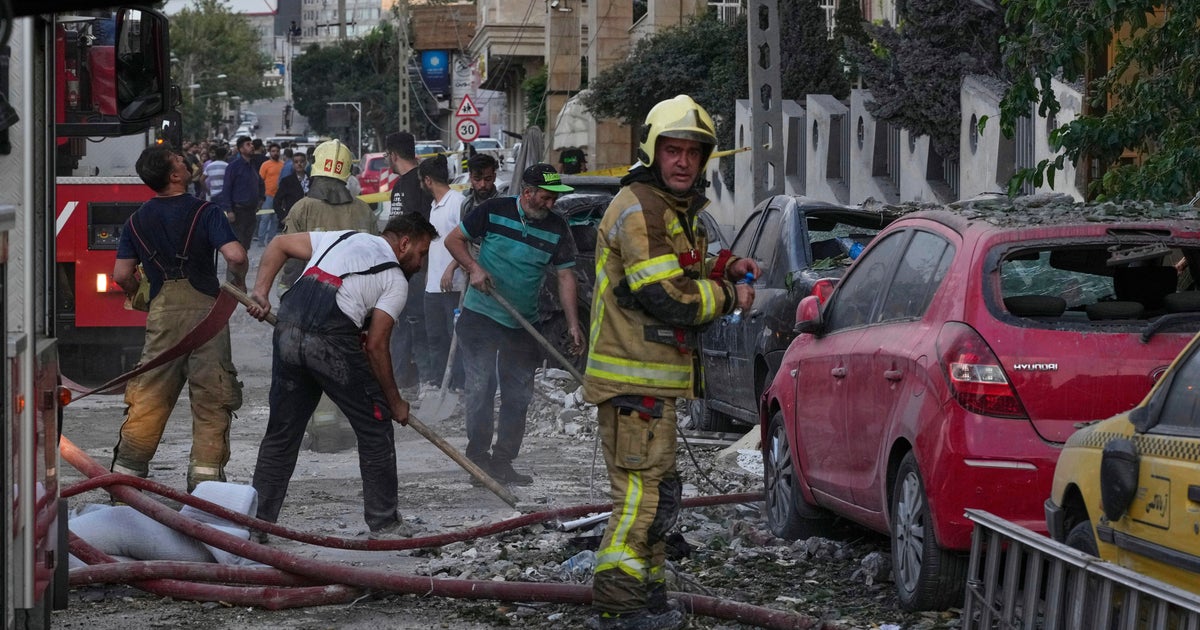
The State Department on Thursday informed multiple U.S.-allied governments in the Middle East in advance of Israel’s strikes on Iran, four sources told CBS News.
Secretary of State Marco Rubio personally reached out to a number of allies, the sources said.
The main message conveyed by the Trump administration in its outreach to allies was that the strikes were not a U.S. operation and did not involve American assets, and that the U.S. preferred diplomacy to military force.
The impression left with multiple regional allied governments was that the Trump administration was trying to distance itself from the military action and the fallout that might occur as a result, including unintended consequences for allies in the region — particularly those that host U.S. forces.
CBS News has reached out to the State Department and White House for comment.
The State Department did not follow the standard practice of providing details of calls to foreign ministers.
Israel said its airstrikes hit Iranian nuclear facilities, research scientists and top military officials early Friday morning local time, in what Israeli Prime Minister Benjamin Netanyahu suggested could be a multiday operation.
The Trump administration has said publicly it was not militarily involved in Israel’s strikes, though it had advance notice of Israel’s plan to strike Iran. The U.S. did help Israel intercept Iranian missiles fired in retaliation, a U.S. official and a White House official confirmed to CBS News. Israeli officials have told CBS News their government gave advance warning to the U.S. but have remained vague about the degree of coordination.
Iran’s military retaliated against the Israeli strikes with a wave of missile and drone attacks on Israel that injured more than 20 people, according to the Israel Defense Forces. Prior to the strikes, Iran threatened to target U.S. bases in the region if it is attacked.
Rubio has warned Iran against targeting U.S. forces.
President Trump is also seeking to strike a deal with Iran to limit the size of its nuclear program. In a Friday morning Truth Social post, Mr. Trump told Iran to “make a deal, before there is nothing left.”
The U.S. and Iran were set to hold talks Sunday, multiple U.S. officials told CBS News. Some reports in Iranian media outlets indicated Iran would likely no longer participate in the negotiations.
Multiple sources told CBS News allied countries fear a wider war in the region, and unintended consequences that may come from this attack on Iran’s nuclear facilities.
The U.S. has air bases in Qatar, the United Arab Emirates, Kuwait, Saudi Arabia and Bahrain, housing U.S. military equipment along with American service members. The U.S. also has troops in Syria and Iraq.
Several of the United States’ regional allies also have relations with Israel via the Abraham Accords, a set of normalization deals between Israel and Arab states struck during Mr. Trump’s first term. Those deals link them both to Israel and its largest weapons provider, the U.S.
A number of these same U.S.-allied governments have their own concerns about the Iranian nuclear program and Iran’s practice of backing militias throughout the Middle East, but strongly object to any attempts at external regime change efforts or actions that could ignite nationalist sentiment and inflame proxy forces that could put them at risk.
The proximity of Arab states like Saudi Arabia and Kuwait to Iran also makes radiation fallout and contamination from strikes on Iranian nuclear facilities a concern for their governments. For example, the Bushehr nuclear facility in Iran is across the Persian Gulf from Kuwait, which has an extensive U.S. military presence on its shores.
Overnight Thursday, International Atomic Energy Agency Director-General Rafael Mariano Grossi claimed Iranian authorities had reported that radiation from Natanz was not at a worrisome point. Since that time, though, strikes have continued, and it is not clear when they will end.
